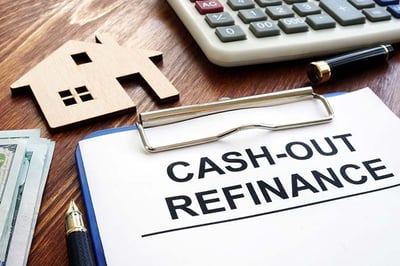Page 51 501 - 510 of 537
What Is Asset Allocation, And Why Is It Important?

Asset allocation is an important aspect of building a diversified portfolio. It is a strategy in which an investor divides capital among several asset classes, such as stocks, bonds, derivatives, and alternatives. While asset allocation does not guarantee a profit or protect against loss in a declining market, this strategy seeks to manage risk by diversifying exposure to asset classes at various locations on the risk spectrum.
Brokers, Bankers & Lawyers

This is part 2 of Ed Maddox's series, entitled: Things I Wish I Knew (While Completing My 1031 Exchange). For part 1, click here. When considering the sale of property and a 1031 exchange, we generally seek advice from trusted advisors during the initial stages. However, as I was going through my own 1031 exchange, I realized that sometimes those trusted advisors may not be the most well-informed on a particular subject. I resolved, therefore, to further my own knowledge in order to make the best decisions.
Realized Raises $6 Million Series A Round Led By Calibrate Ventures

Yesterday, we announced the raise of $6 million in Series A funding. The funding was led by Calibrate Ventures and joined by Rice Park Capital. We will be utilizing these funds to expand our team and technology.
What Is A Quitclaim Deed?

If you have ever purchased or sold real estate, you may have received or been granted a deed in the process. If it was a traditional transaction between unrelated parties, you probably came across what is called a general warranty deed, which provided you assurance as a buyer that the seller owned the property outright, or vice versa. However, it is possible that you have never handled or been issued a quitclaim deed. Although similar in purpose to a general warranty deed, quitclaim deeds have unique features that differentiate them.
Cashing Out To Bring More In

As a real estate investor, there could be times when you find you might need more cash than what your revenue streams can provide. Maybe you want to make improvements on your current properties. Or, perhaps, you want to buy additional assets to expand your portfolio.
Phantom Income: A Haunting Investment Reality

As an investor, you should be consistently on the lookout for issues that might cut into your wealth, as well as those that could increase your tax burden. One such issue that could have an affect on both of these things is known as phantom income.
The Class That Is Right For You

Although we are inching towards the later stages of the cycle, the multifamily investment market has remained healthy. Providing evidence of this is the fact that national vacancy rates have only slowly inched up in the face of high levels of new supply.1 But doing well in this sector involves more than buying an apartment building and sitting back as a passive investor. Before you start your property hunt, however, you need to ask whether that Class A “luxury” investment, or Class B “workforce” property fits your risk profile and your investment goals.
Busting Myths: The Connection Between Real Estate and Interest Rates

As of December 2018, The Federal Reserve Open Market Committee (FOMC) had bumped up the federal funds rate for five consecutive quarters. Although Federal Reserve Chairman Jerome Powell signaled a slow down of increasing rates in the committee’s meeting in January 2019, there is still optimism that the U.S. economy will grow in the near future amongst FOMC members, meaning the possibility of further increases in the future.1
Class Acts: Understanding The Real Estate Grading System

There is a lot to consider before diving into real estate as an investment. You need to understand your own investment goals, and risk tolerance. You also should have an understanding of the market in which you want to invest, type of property you are eyeing, how much it is valued for – and the asset grade. Much like papers and school work are graded based on quality, real estate assets also come with grades, based on many factors.
An Intro Course to Student Housing Investments

In a previous blog, we focused on various types of real estate we dubbed “recession-resistant.” Property types such as student housing are considered to be insulated against recessions, as it succeeds or fails based on fundamentals such as college enrollment rather than economic cycles.
Page 51 501 - 510 of 537


